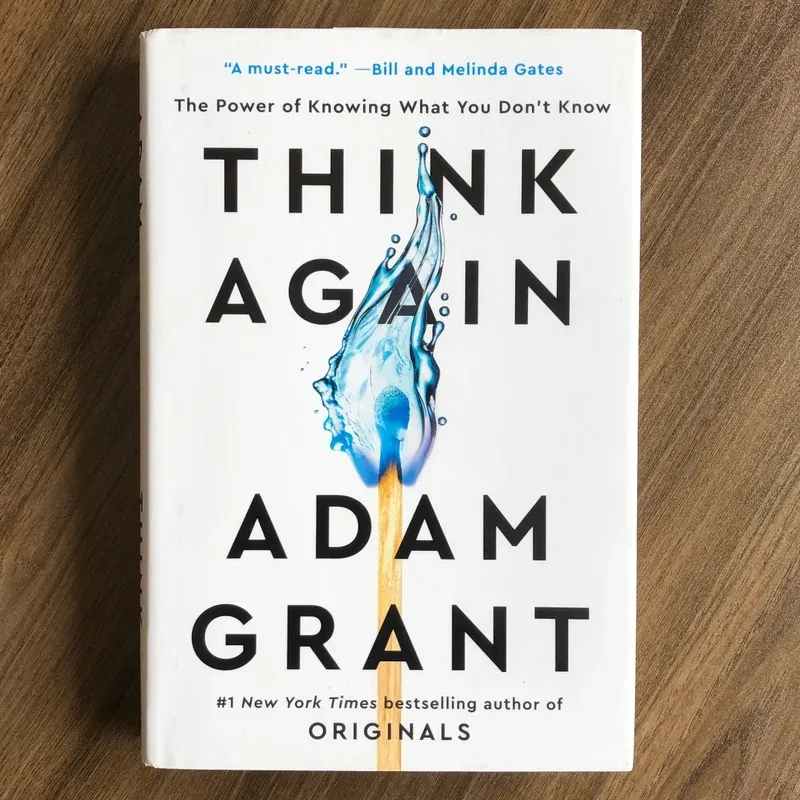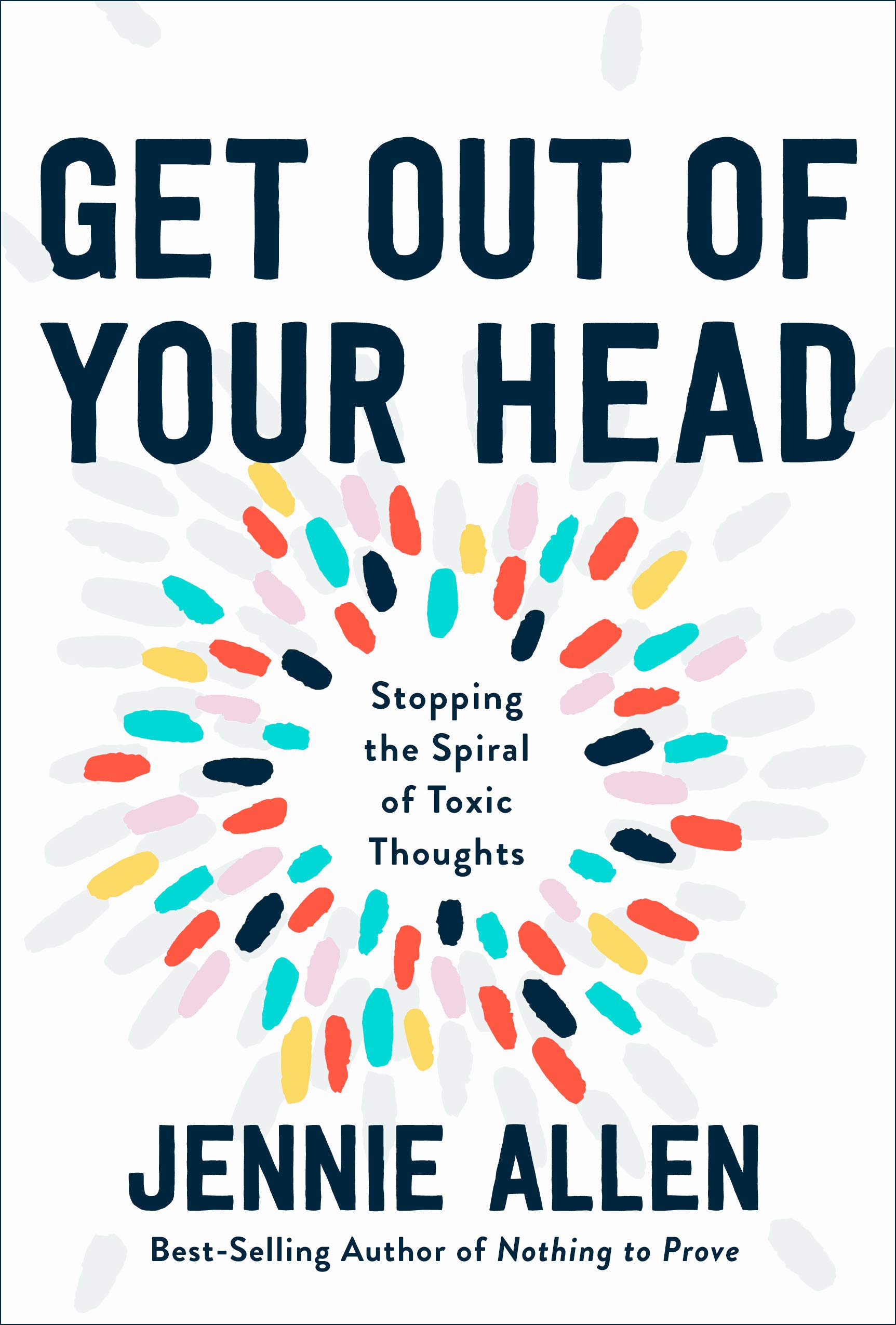
Think Again by Adam Grant is a great reminder that things shouldn’t just be as they always have been. So much research has been done on the value of reflection, iterating, and simply rethinking. Deep down, we really don’t want things to be as they always have been…we want them to be better and that means we must approach the same old things with a new way of thinking. This book was a great read…lots to think about. I highlighted several things while reading and have posted those notes below…
- When people reflect on what it takes to be mentally fit, the first idea that comes to mind is usually intelligence. The smarter you are, the more complex the problems you can solve—and the faster you can solve them. Intelligence is traditionally viewed as the ability to think and learn. Yet in a turbulent world, there’s another set of cognitive skills that might matter more: the ability to rethink and unlearn. Location: 97
- Part of the problem is cognitive laziness. Some psychologists point out that we’re mental misers: we often prefer the ease of hanging on to old views over the difficulty of grappling with new ones. Yet there are also deeper forces behind our resistance to rethinking. Questioning ourselves makes the world more unpredictable. It requires us to admit that the facts may have changed, that what was once right may now be wrong. Reconsidering something we believe deeply can threaten our identities, making it feel as if we’re losing a part of ourselves. Location: 118
- We favor the comfort of conviction over the discomfort of doubt, and we let our beliefs get brittle long before our bones. We laugh at people who still use Windows 95, yet we still cling to opinions that we formed in 1995. We listen to views that make us feel good, instead of ideas that make us think hard. Location: 124
- My aim in this book is to explore how rethinking happens. I sought out the most compelling evidence and some of the world’s most skilled rethinkers. The first section focuses on opening our own minds. Location: 222
- The second section examines how we can encourage other people to think again. Location: 227
- The third section is about how we can create communities of lifelong learners. Location: 230
- This book is an invitation to let go of knowledge and opinions that are no longer serving you well, and to anchor your sense of self in flexibility rather than consistency. Location: 245
- A hallmark of wisdom is knowing when it’s time to abandon some of your most treasured tools—and some of the most cherished parts of your identity. Location: 249
- Progress is impossible without change; and those who cannot change their minds cannot change anything. —George Bernard Shaw Location: 258
- We go into preacher mode when our sacred beliefs are in jeopardy: we deliver sermons to protect and promote our ideals. We enter prosecutor mode when we recognize flaws in other people’s reasoning: we marshal arguments to prove them wrong and win our case. We shift into politician mode when we’re seeking to win over an audience: we campaign and lobby for the approval of our constituents. The risk is that we become so wrapped up in preaching that we’re right, prosecuting others who are wrong, and politicking for support that we don’t bother to rethink our own views. Location: 309
- Mental horsepower doesn’t guarantee mental dexterity. No matter how much brainpower you have, if you lack the motivation to change your mind, you’ll miss many occasions to think again. Research reveals that the higher you score on an IQ test, the more likely you are to fall for stereotypes, because you’re faster at recognizing patterns. And recent experiments suggest that the smarter you are, the more you might struggle to update your beliefs. Location: 385
- Thinking like a scientist involves more than just reacting with an open mind. It means being actively open-minded. It requires searching for reasons why we might be wrong—not for reasons why we must be right—and revising our views based on what we learn. Location: 405
- Our convictions can lock us in prisons of our own making. The solution is not to decelerate our thinking—it’s to accelerate our rethinking. That’s what resurrected Apple from the brink of bankruptcy to become the world’s most valuable company. Location: 458
- Research shows that when people are resistant to change, it helps to reinforce what will stay the same. Visions for change are more compelling when they include visions of continuity. Although our strategy might evolve, our identity will endure. Location: 474
- The curse of knowledge is that it closes our minds to what we don’t know. Good judgment depends on having the skill—and the will—to open our minds. Location: 485
- Great thinkers don’t harbor doubts because they’re impostors. They maintain doubts because they know we’re all partially blind and they’re committed to improving their sight. They don’t boast about how much they know; they marvel at how little they understand. They’re aware that each answer raises new questions, and the quest for knowledge is never finished. A mark of lifelong learners is recognizing that they can learn something from everyone they meet. Location: 764
- Attachment. That’s what keeps us from recognizing when our opinions are off the mark and rethinking them. To unlock the joy of being wrong, we need to detach. I’ve learned that two kinds of detachment are especially useful: detaching your present from your past and detaching your opinions from your identity. Location: 879
- Who you are should be a question of what you value, not what you believe. Location: 898
- Being wrong won’t always be joyful. The path to embracing mistakes is full of painful moments, and we handle those moments better when we remember they’re essential for progress. But if we can’t learn to find occasional glee in discovering we were wrong, it will be awfully hard to get anything right. Location: 1,010
- The clearest sign of intellectual chemistry isn’t agreeing with someone. It’s enjoying your disagreements with them. Harmony is the pleasing arrangement of different tones, voices, or instruments, not the combination of identical sounds. Creative tension makes beautiful music. Location: 1,136
- Experiments show that simply framing a dispute as a debate rather than as a disagreement signals that you’re receptive to considering dissenting opinions and changing your mind, which in turn motivates the other person to share more information with you. A disagreement feels personal and potentially hostile; we expect a debate to be about ideas, not emotions. Starting a disagreement by asking, “Can we debate?” sends a message that you want to think like a scientist, not a preacher or a prosecutor—and encourages the other person to think that way, too. Location: 1,296
- Listening well is more than a matter of talking less. It’s a set of skills in asking and responding. It starts with showing more interest in other people’s interests rather than trying to judge their status or prove our own. We can all get better at asking “truly curious questions that don’t have the hidden agenda of fixing, saving, advising, convincing or correcting,” journalist Kate Murphy writes, and helping to “facilitate the clear expression of another person’s thoughts.”[*] Location: 2,204
- When we succeed in changing someone’s mind, we shouldn’t only ask whether we’re proud of what we’ve achieved. We should also ask whether we’re proud of how we’ve achieved it. Location: 2,265
- education is more than the information we accumulate in our heads. It’s the habits we develop as we keep revising our drafts and the skills we build to keep learning. Location: 2,817
- Rethinking is more likely to happen in a learning culture, where growth is the core value and rethinking cycles are routine. In learning cultures, the norm is for people to know what they don’t know, doubt their existing practices, and stay curious about new routines to try out. Evidence shows that in learning cultures, organizations innovate more and make fewer mistakes. After studying and advising change initiatives at NASA and the Gates Foundation, I’ve learned that learning cultures thrive under a particular combination of psychological safety and accountability. Location: 2,867
Categories:


